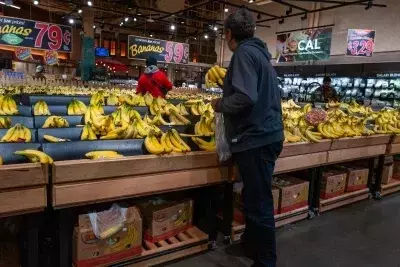
A group comprising 21 states and the District of Columbia has launched legal proceedings against the U.S. Department of Agriculture (USDA) following the federal agency's mandate for states to surrender detailed personal information pertaining to applicants and their household members participating in food assistance programs. The USDA has stipulated that states must provide data, including names, Social Security numbers, birthdates, and addresses, for all Supplemental Nutrition Assistance Program (SNAP) applicants from the past five years by a July 30 deadline. Furthermore, the USDA recently expanded its data request to encompass additional information such as immigration status and details about household members, warning that non-compliance could result in funding cuts.
This legal challenge, spearheaded by the Democratic attorneys general of California and New York, contends that the USDA's directive violates established federal privacy laws and fails to adhere to proper protocols. The states are seeking a judicial injunction to prevent the USDA from enforcing its data demand or from penalizing states by withholding funds should they refuse to comply. Critics argue that this aggressive data collection initiative, which they label an \"Orwellian surveillance campaign,\" is not genuinely aimed at preventing fraud but rather at creating a government database that could be used for other purposes, including immigration enforcement. This concern is amplified by the Trump administration's broader efforts to link and utilize government data, such as IRS and Medicaid records, for immigration-related actions.
The lawsuit emphasizes that the personal data collected from SNAP applicants is intended solely for the purpose of providing food assistance to families, not for broader governmental surveillance. State attorneys general, like Michigan's Dana Nessel, have voiced concerns that this data demand could have a chilling effect, deterring eligible families, particularly those with mixed immigration statuses, from utilizing essential public assistance programs out of fear of adverse consequences. They assert that robust anti-fraud measures and auditing mechanisms already exist without requiring the collection of such sensitive personal identifying information. This is the second lawsuit challenging the USDA's data collection plan, following an earlier suit filed by SNAP recipients and advocacy groups. The legal battle underscores a critical tension between governmental oversight and individual privacy rights within the realm of public assistance programs.
The protection of personal data and the assurance that essential social services remain accessible to those in need are fundamental pillars of a just society. It is imperative that government agencies, in their pursuit of efficiency and accountability, do not inadvertently create barriers or instill fear among vulnerable populations. Upholding privacy rights while ensuring the integrity of public programs demonstrates a commitment to both responsible governance and compassionate public service, fostering trust and promoting the well-being of all citizens.
